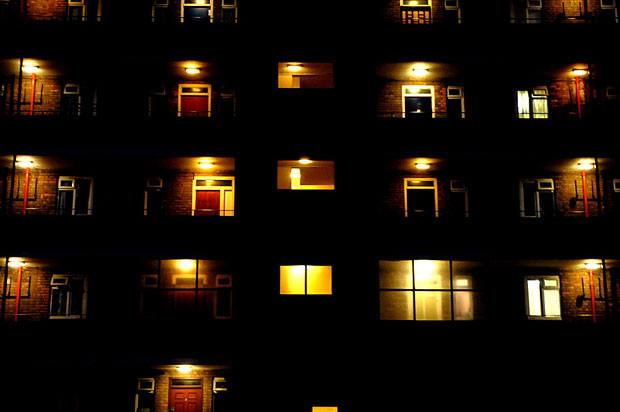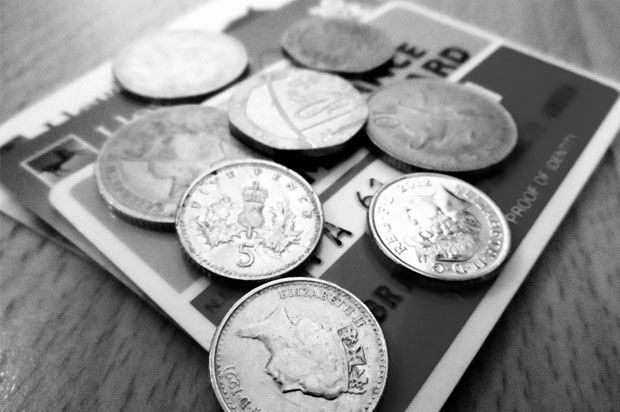Council tax
If you’re living outside your family home and not a student, you’ll probably have to pay council tax. Find out what it is, how much you’ll pay and whether you’re paying too much.

Put your light on if you HATE paying council tax...
What is council tax?
Council tax is a tax on your home, collected by your local authority. The amount you pay will depend on where you live, as different local authorities charge different amounts of council tax.
All houses are divided up into council tax ‘bands’, but the amount you’ll pay in each band differs between local authorities. Confusing, we know. Generally, the bigger the property, the more council tax you pay.
It doesn’t matter if you rent or own the property, you still have to pay council tax – though some people, including full-time students, are exempt.
Working out which valuation band your home is in
If you live in England, Wales or Scotland, find out what band you’re in by checking the Valuation Office website. If the band seems to be incorrect, follow the steps outlined in this article. You could end up saving loads of money if your house is in the wrong band.
Northern Ireland currently has a rates system for calculating council tax.
Who’s exempt from council tax?
You can find full details of exemptions and council tax reductions on the GOV.UK website. Exempt people include students, under 18s, people on Government training schemes, people with disabilities… and diplomats (it’s a hard life, eh?).
Who pays council tax?
Usually one person who’s over 18 and living in the property will be the ‘liable person’ who has to pay council tax. Couples living together, married or not, will both be liable, even if there’s only one name on the bill.
If more than one person lives in a house, a system called the hierarchy of liability is used to work out who is the liable person. The person at the top of the hierarchy, for example the owner, is the liable person. Two people at the same point of the hierarchy, for example the tenants, will both be liable.
How much is council tax?
Council taxes are set at a local level and what you pay depends on the value of your home, so it varies quite a bit depending on where you live. Each year, your local authority will set a rate of council tax for each valuation band.
Can I get my council tax reduced?
Not everyone will have to pay the full amount of council tax. There are three ways in which your council tax bill may be reduced:
- If someone’s living in the house who’s substantially disabled the council tax is reduced by one valuation band under the reduction scheme for disabled people.
- A 25% discount applies if only one person lives in the property.
- If you’re on a low income, you may be entitled to council tax benefit. If you’re not claiming this, but also living with someone who isn’t liable to pay council tax on your property, you may qualify for a second adult rebate.
For more details, visit your nearest Citizens Advice Bureau (CAB).
How do I pay?
Council tax bills should be sent out in April. You have the right to pay by 10 instalments and it’s best to set up a direct debit to avoid missing any. If you’re feeling rich you can pay in one go and get it out the way, but you won’t get a discount for doing this.
Council tax when you’re a student
To ensure you’re exempt from council tax if you’re a student, do the following:
- Get a council tax exemption certificate when you enrol at university
- Contact your local authority and let them know that you’re exempt from paying
What if some of us are students and some aren’t?
If there’s more than one non-student in your shared house then the council sees everyone as liable for the council tax (part-time students count as non-students). You just have to suck it up and pay the bill, unless the non-students are kind enough to shoulder the burden.
If there are non-students in the house, then you will have to pay the full bill unless there’s only one non-student, in which case you can get a 25% reduction on the council tax bill for the property. You should agree before moving in somewhere who’ll pay what parts of the council tax bill, otherwise this often causes arguments later!
Unfair council tax decisions
Appeals can be made about a range of council tax issues. If you want to challenge your banding, an appeal must be made to the valuation office (Assessor’s Department in Scotland). Local authorities consider other cases.
What happens if I don’t pay my council tax?
In England and Scotland, the local authority has the power to eventually deduct council tax from your income support, jobseeker’s allowance or wages. They can also order bailiffs to seize your goods to the value of the amount owed. If this is unsuccessful then the council could apply to the Magistrates Court for you to go to prison for up to three months.
When previous tenants haven’t paid their council tax
It’s fairly common to rent a place and discover the previous tenants were council tax dodgers when the local authority slaps you with a big bill. This can be scary, but don’t worry – it should be fairly simple to prove to the council that you’re not liable because you weren’t living at that address at the time. You’ll need to show them your tenancy agreement, plus evidence of your previous addresses and the dates you lived there.
Thanks to Citizens Advice Bureau for help with this article.
Next Steps
- Citizens Advice offer free help with housing, money and legal problems. Find your local centre.
- Chat about this subject on our Discussion Boards.
By
Updated on 29-Sep-2015
No featured article










